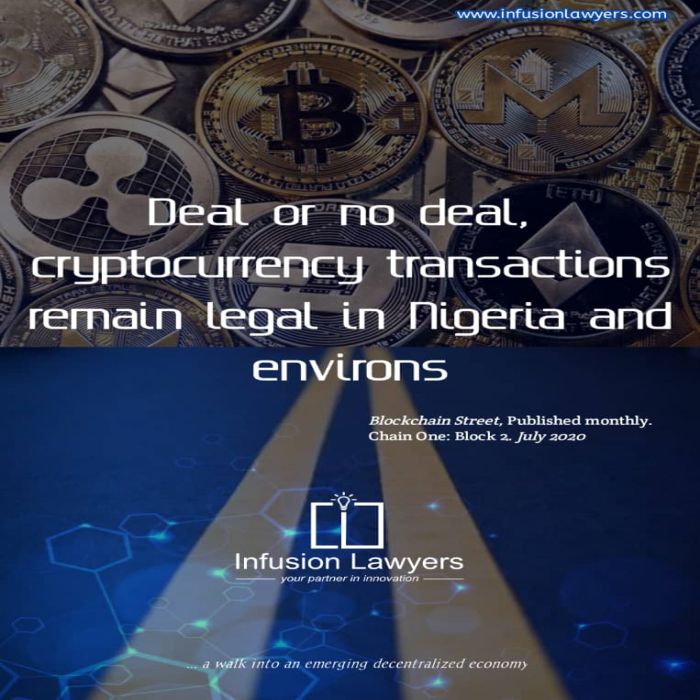In the inaugural edition of Blockchain Street, we considered whether blockchain technology—a decentralized ledger technology which has been described as a 'trustless technology'—can really solve the problem of trust in a centralized world.
In the month of July, we consider the legal status of cryptocurrency deals in Nigeria and neighbouring African countries—Ghana and Kenya. A consideration of this issue has become pertinent in view of the public perception in Nigeria in particular, and the disposition of law enforcement agents when disputes connected to cryptocurrency transactions arise. At the height of it, we have seen ill-informed FinTech companies illegally confiscate legitimate funds belonging to users (cryptocurrency traders who trade bitcoin on peer-to-peer cryptocurrency exchanges) of their platforms on the ground that the users are involved in bitcoin or other cryptocurrency trading.
As a quick illustration, where a person defrauds another in the process of transacting a business of supply of goods (e.g. computers) or rendering of services (such as web development), does that make the business of computer supply or web development illegal? Certainly, the answer to the above question is an emphatic NO.
Bearing the above illustration in mind, we shall then delve into the subject of discourse in order to clarify the issues and set the records straight.
Dealing in or trading in cryptocurrency such as bitcoin for example is not illegal under relevant laws.
No law in Nigeria, Ghana, or Kenya has made dealing in cryptocurrency illegal or criminalized it, including cryptocurrency trading. Engaging in cryptocurrency transactions does not amount to "illegal transactions" under Kenyan, Ghanaian, and Nigerian laws. It is what the user does with the cryptocurrency or in the process of the transaction that determines illegality or otherwise.
To read more, click here to download Blockchain Street.
Originally published August 6, 2020.
The content of this article is intended to provide a general guide to the subject matter. Specialist advice should be sought about your specific circumstances.


